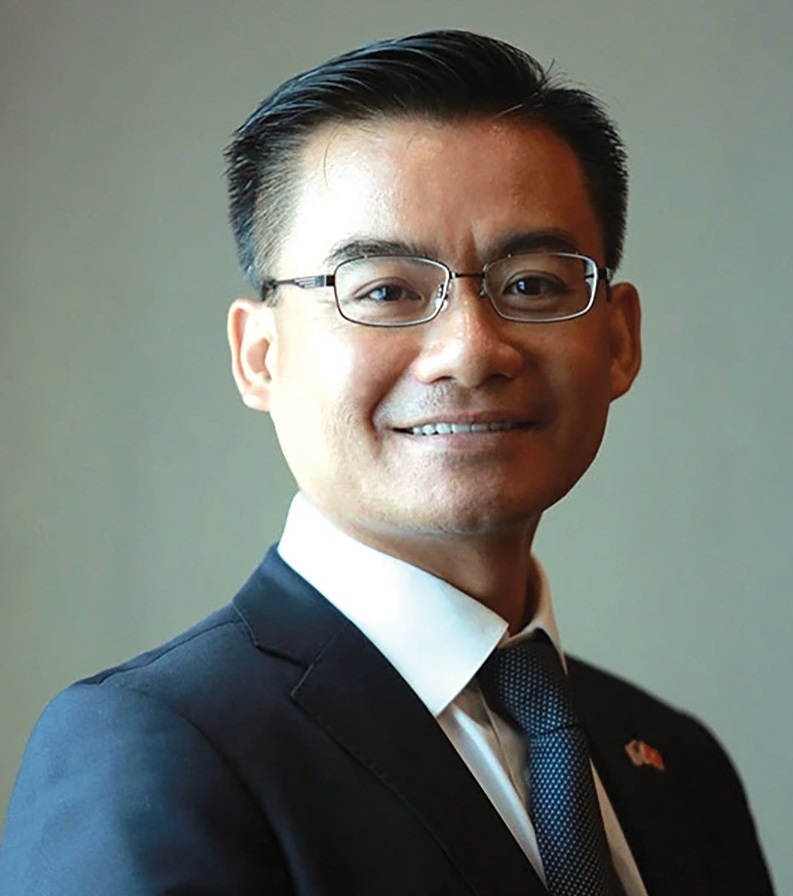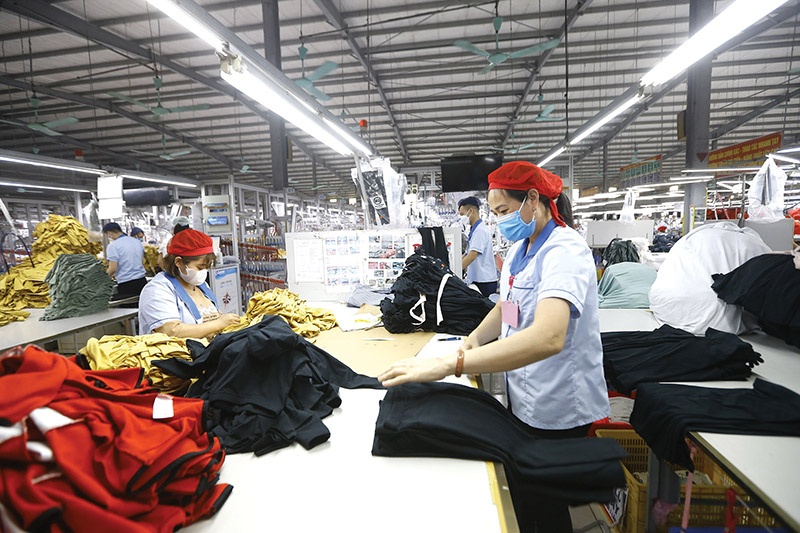Special summit underlining ASEAN’s importance to US
How do the efforts to organise the summit with ASEAN represent a US return to Asia after a hiatus in investment and commercial ties?
 |
| Vu Tu Thanh, deputy managing director for the US-ASEAN Business Council |
There has been a steady increase in US interest in Asia-Pacific since President Obama’s administration. To emphasise India’s role in the region, the Trump administration called the region Indo-Pacific. The Trump administration had intended to host the second ASEAN-US Summit in early 2020 in the United States but cancelled it due to COVID-19.
Because the entire globe has been preoccupied with fighting the virus for the past two years, there haven’t been many breakthroughs in US-ASEAN ties. The Biden administration, however, sought to hold this summit as soon as the pandemic was under control. This is a move that follows the above direction, especially after President Biden announced the Indo-Pacific strategy and kicked off discussions with regional partners on an Indo-Pacific Economic Framework (IPEF). Although the Russia-Ukraine conflict has attracted many of the US’ political and material resources, it still does not distract from interest in this region, of which ASEAN is a very important partner.
Do you think economics or geopolitics will receive more coverage at this summit?
The summit mainly focuses on the economy, trade, and healthcare cooperation. Meetings between high-ranking representatives of Southeast Asia and senior US government officials, including President Biden, Vice President Kamala D. Harris, and others, will take place during the summit. The US Trade Representative, the Secretary of Commerce, and the President’s Special Envoy for Climate Change are all members of the cabinet.
The US government has promoted conversations with regional partners about a new foundation for the IPEF. The framework covers key pillars of trade, the digital economy, and supply chain security, which also includes trade resilience and health security now and in the future. Green transition is another priority of the Biden administration.
In light of the West’s decreasing reliance on fossil fuels and supplies from Russia, the green energy transition is becoming more pressing than ever. If the green transition is done carefully, it will aid countries in achieving long-term energy security.
Does the US focus on Asia aim to eliminate possible trade risks from China?
Due to the power transfer in the US and the fight against the pandemic, neither the US nor ASEAN has had the opportunity to focus on deepening their relationship over the past two years. Now is the time to take concrete and substantive actions. Strengthening cooperation to ensure global supply chain security will help reduce, but not completely eliminate, trade risks from China, such as its current pandemic policy.
China plays an extremely important role in the global supply chain. Diversifying supplies and enhancing ASEAN’s capacity to participate more deeply in the global supply chain does not imply excluding China from the supply chain, as this would be business nonsense.It is more vital to improve supply chain security and trade flow resilience in the event of any emerging issues relating to China. Indeed, increasing supply chain security is a win-win for all parties, including China.
 |
| Photo: Duc Thanh |
Does Washington compare with Beijing in terms of economic relations with ASEAN?
One may argue that China’s investment in ASEAN outnumbers that of the US. However, the US does not invest nearly as much in infrastructure as China’s Belt and Road project.
US investment capital in ASEAN totalled $338 billion in 2019, surpassing the total value of US investment in mainland China, India, Japan, and South Korea combined.
Meanwhile, data from the China-ASEAN Business Council revealed that as of May 2018, the overall investment volume between China and ASEAN was just around $200 billion.
Is it possible for the US to promote IPEF at this summit?
There have been several rounds of manuscripts between the US and regional partners, including Japan, South Korea, Australia, and Singapore, with Vietnam being mentioned in October, through diplomatic activities. The IPEF is advocated by the US as a new platform for economic issues such as fair and sustainable trade with emphasis on the digital economy, supply chain resilience, infrastructure, clean energy and decarbonisation, taxation, and anti-corruption.
During the past two years, the supply chain of goods entering the US has been disturbed severely. Many countries, including the US, want to reorganise supply chains, choosing Vietnam as a link in the global supply chain. But as far as I know, the Biden administration itself does not want a free trade agreement (FTA) in the current context, so it designed the IPEF under the direction of the executive.
The level of constraints for the IPEF may be lower than that of an FTA. It is possible to convince the partners to join the IPEF within a certain period of negotiation. The benefits for Vietnam are huge if participating in it.
Following President Biden’s direction, the US will promote prosperity on broad foundations. American investment in the Indo-Pacific region has exceeded $1 trillion, and the US will invest more to respond to calls from the region.
What is the role of Vietnam in promoting regional economic links with the US?
Vietnam plays an increasingly important role. As stated by Prime Minister Pham Minh Chinh during the ASEAN-US Summit in 2021, the promotion of the ASEAN-US Strategic Partnership in all three aspects of security, socioeconomic recovery, and sustainable development are also the priorities of the Biden administration.
The US government has fostered trade and investment ties with Vietnam in recent years. The US ranked 11th out of 140 countries and territories investing in Vietnam as of April 20. US investors currently have 1,158 viable projects with the total registered capital of $10.47 billion, according to fresh data from the Foreign Investment Agency under the Ministry of Planning and Investment.
Besides general issues, will other economic activities of Vietnam be mentioned on the sidelines of the summit?
I don’t have yet a complete overview of all the activities at this event. However, the US-ASEAN Business Council will arrange two major events in Washington.
The first is a working session of a high-ranking Vietnamese delegation led by the prime minister with the participation of various representatives from the Biden administration and some top executives from American groups. The content is still being developed, but it will focus on vital Vietnamese industries like energy, the digital economy, and banking.
The second is a dialogue between US corporate leaders and ASEAN leaders, which will be coordinated by a top official of the Biden administration. The dialogue also emphasises the importance of strengthening economic, trade, and healthcare partnerships.
What the stars mean:
★ Poor ★ ★ Promising ★★★ Good ★★★★ Very good ★★★★★ Exceptional
Related Contents
Latest News
More News
- State corporations poised to drive 2026 growth (February 03, 2026 | 13:58)
- Why high-tech talent will define Vietnam’s growth (February 02, 2026 | 10:47)
- FMCG resilience amid varying storms (February 02, 2026 | 10:00)
- Customs reforms strengthen business confidence, support trade growth (February 01, 2026 | 08:20)
- Vietnam and US to launch sixth trade negotiation round (January 30, 2026 | 15:19)
- Digital publishing emerges as key growth driver in Vietnam (January 30, 2026 | 10:59)
- EVN signs key contract for Tri An hydropower expansion (January 30, 2026 | 10:57)
- Vietnam to lead trade growth in ASEAN (January 29, 2026 | 15:08)
- Carlsberg Vietnam delivers Lunar New Year support in central region (January 28, 2026 | 17:19)
- TikTok penalised $35,000 in Vietnam for consumer protection violations (January 28, 2026 | 17:15)

 Tag:
Tag:




















 Mobile Version
Mobile Version